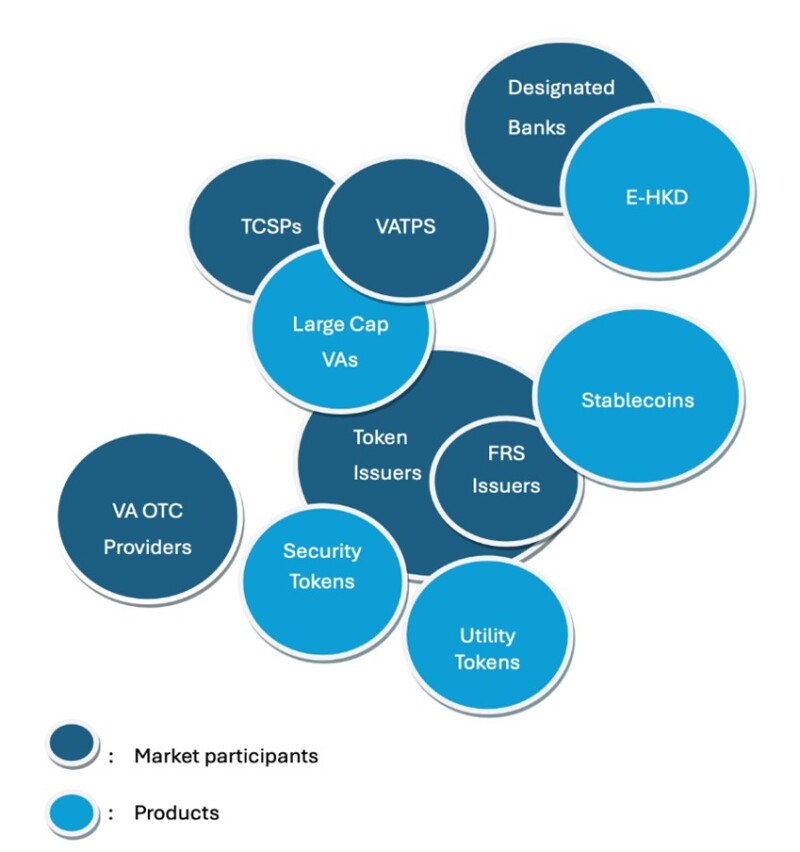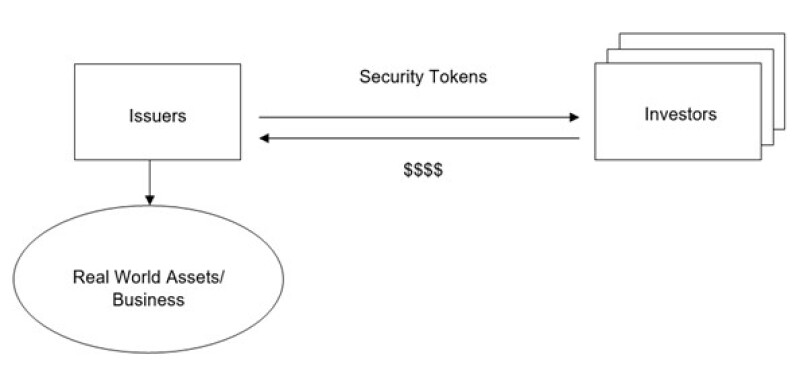The web3 and fintech ecosystem in Hong Kong has developed into a dynamic and intricate landscape, characterised by rapid growth and continuous evolution. As a global financial hub, Hong Kong has seen a surge in activity and interest in virtual assets (VAs; the Hong Kong terminology to denote digital assets), thereby attracting a diverse range of global participants. Regulatory authorities in Hong Kong have maintained a vigilant yet increasingly open-minded approach, balancing the promotion of innovation and opening up of the fintech regulatory environment with the need to safeguard the financial system and protect investors and the public.
Regulatory bodies such as the Securities and Futures Commission of Hong Kong (SFC) and the Hong Kong Monetary Authority (HKMA) are at the forefront in ensuring that the VA market operates within a world-class framework that upholds market integrity and consumer protection.
This article provides a bite-sized introduction to Hong Kong’s developing regulatory frameworks relating to security token offerings (STOs), virtual asset trading platforms (VATPs), virtual asset over-the-counter (VA OTC) trading, VA spot exchange-traded funds (VA spot ETFs), and fiat-referenced stablecoins (FRS), as well as the development of e-HKD Central Bank Digital Currency (CBDC).
A simplified mindmap depicting the VA ecosystem is set out below:

STOs
Nature of the tokenised security regulatory framework
Central to any discussion regarding the VA ecosystem is the application of distributed ledger technology (DLT) to fundraising activities in Hong Kong and the utilisation of STOs to investors.
STOs represent a significant evolution in financial markets by combining traditional securities with digital technology, thereby utilising digital ‘wrappers’ to tokenise real-world assets (RWAs), as illustrated in the following simplified diagram:

Regulatory ambit on RWA tokenisation
Hong Kong regulates VAs through its existing security and anti-money laundering laws (e.g., the Securities and Futures Ordinance, or SFO), while implementing continuous legislative supplements and guidance to cater with the healthy development of RWA tokenisation initiatives.
The SFC's regulatory approach of ‘same nature, same risks, same regulation’ ensures that tokenised securities, by virtue of their nature as securities, are subject to the same regulatory standards as traditional securities. In particular, tokenised securities and their issuance shall adhere to existing regulations governing securities, including requirements for licensing, risk management, and investor protection, regardless of their digital format or the technology underlying their issuance. This approach maintains consistency and addresses the specific risks that are traditionally associated with securities.
In November 2023, the SFC published two circulars, on intermediaries engaging in tokenised securities-related activities (the Intermediaries Circular) and the tokenisation of SFC-authorised investment products (the Investment Products Circular).
In the Intermediaries Circular, the SFC highlights the need to mitigate ownership and technology risks in tokenised securities, especially on public permissionless networks with limited investor recourse. The anonymity and transferability of these tokens also raise money laundering and know-your-customer concerns. Intermediaries must ensure rigorous due diligence, robust risk management, and clear client communication about these risks.
Under the Investment Products Circular, the SFC will permit tokenised SFC-authorised products if underlying assets meet all the requirements and additional safeguards are in place. Product providers must ensure operational integrity, robust cybersecurity, and detailed disclosures, while avoiding public permissionless networks without controls. They must also have qualified staff, and distributors must be regulated and follow strict client onboarding procedures.
Complex product categorisation and professional investors-only restrictions
Two additional advancements brought by the circulars are an elaboration on complex product categorisation and a removal of the professional investors (PI)-only restriction.
The circulars have superseded the SFC’s previous statement, in March 2019, that security tokens are complex products that require enhanced investment protection measures and can only be offered to PIs. Instead, the SFC clarifies that it now considers tokenised securities to be essentially traditional securities with a tokenisation wrapper.
Therefore, tokenisation should not alter the complexity of the underlying security, and, as such, the blanket categorisation of a tokenised security as a complex product and the mandatory PI-only restriction are no longer applicable. This also indicates that VAs are increasingly mainstream and the access should not blindly be limited to institutional or high-net-worth investors.
Case study: Hong Kong digital green bond offering
The Hong Kong government’s first tokenised green bond offering, of HK$800 million in February 2023 (Project Evergreen), marks a significant milestone for the Hong Kong STO scene. One year later, the Hong Kong government completed the second digital bond issuance, of around HK$6 billion worth of digital green bonds denominated in Hong Kong dollars, renminbi, US dollars, and euro.
Indeed, as noted in the HKMA’s report on Project Evergreen, the Hong Kong government’s green bond tokenisation has sparked interesting structuring and regulatory considerations. The SFO does not specify whether debt securities must be issued in paper or digital form, meaning that digital bonds are still subject to the SFO’s existing licensing regime for regulated activities and securities offerings. The token offering was structured into two key parts: securities, which addresses title and on-chain application, and payments, which focuses on settlement finality. Additionally, for other corporate issuers, compliance with the applicable prospectus requirements under the Companies (Winding Up and Miscellaneous Provisions) Ordinance should also be considered.
In terms of the nature of tokenised issuance, digital bonds issuance can be ‘native’, meaning the bonds are issued directly on a DLT platform, or ‘non-native’, meaning the bonds are first issued off-platform and then tokenised on a DLT platform. An additional distinction is that native issuance does not involve the conventional system of central securities depository in tokenisation of the bonds, while non-native issuance does.
Under Hong Kong’s current legislation, neither the SFO, the Companies Ordinance (CO), nor the Payment Systems and Stored Value Facilities Ordinance mandates a form that debt securities must take at issuance. However, as digital bonds are regarded as ‘debentures’ under the CO, the HKMA has highlighted several major requirements that may be of particular interest to digital bond issuers; for example, if the company issues debentures that are not transferable by delivery, it is required to keep a register of holders of the debentures, thus the DLT platform that the potential Hong Kong company intends to utilise would need to be able to reproduce the register in hard-copy form.
VATPs and VA OTC
Background to the VATP licensing regime
VATPs – or crypto-exchanges, as they are colloquially called – are another key player in the VA ecosystem that calls for effective regulation and oversight, especially in view of the collapse of the FTX digital currency exchange. After years of preparation involving legislative amendments, the SFC, as one of the first few major financial regulators to introduce a comprehensive framework to regulate VA-related activities, launched a dual-licensing regime for VATPs in June 2023 (the VATP Licensing Regime).
Scope and coverage of the VATP Licensing Regime
In principle, only licensed VATP operators can conduct crypto-exchange business in Hong Kong. Recent regulatory changes allow VATPs to offer services to retail investors, provided they implement strong investor protection measures.
VATPs must assess investors’ understanding of VA risks and set exposure limits based on their financial situation. VATPs shall stipulate and adhere to strict token admission criteria, including due diligence and monitoring for admission of VAs. For retail-tradable VAs, specific criteria require tokens to be large-cap and included in at least two acceptable indices from independent providers. Normally, the custodianship of VAs can only be carried out by a licensed trust or company service provider (TCSP). The involvement of a TCSP aims to enhance the protection of clients' assets and ensure that VA operations meet regulatory standards.
Scope and coverage of the VA OTC licensing regime
Following the implementation of the VATP Licensing Regime, Hong Kong also recognises the need to address VA OTC trading, which was previously a regulatory ambiguity. In February 2024, the Financial Services and the Treasury Bureau of Hong Kong (FSTB) introduced a legislative proposal to implement a new licensing regime for providers of VA OTC services under the Anti-Money Laundering and Counter-Terrorist Financing Ordinance.
Under the proposal, any person operating an VA OTC business in Hong Kong or actively marketing the provision of VA OTC services to the Hong Kong public will need to obtain a licence issued by the commissioner of customs and excise (CCE). The CCE will also be granted powers to enforce the regime and supervise licensed VA OTC service providers. Such powers include entering licensees’ business premises to conduct routine inspections and imposing disciplinary sanctions for non-compliance.
VA spot ETFs in Hong Kong
Hong Kong also welcomes the development of VA spot ETFs to broaden investment opportunities in digital assets. In April 2024, Hong Kong saw the listing of Asia’s first VA spot ETFs on Hong Kong Exchanges and Clearing Limited. The VA spot ETFs authorised by the SFC are only allowed to invest in VAs that are accessible to the Hong Kong public for trading on SFC-licensed VATPs.
The introduction of VA spot ETFs is designed to provide investors with a regulated and accessible means of gaining exposure to VAs through traditional investment vehicles. These ETFs will track the performance of underlying VAs directly, offering a more transparent and secure way for investors to engage with the digital asset market, while adhering to Hong Kong's regulatory standards for financial products.
Fiat-referenced stablecoins
Definitions
Hong Kong acknowledges the transformative potential of stablecoins due to their seamless integration into financial transactions, commerce, and capital markets, but also recognises the risks they pose. In July 2024, the FSTB and HKMA released consultation conclusions on a legislative proposal for regulating FRS, with a draft bill expected later in the year.
The proposed definition of stablecoins includes their function as a digital value representation, a unit of account, a medium of exchange for goods and services, and their operation on a decentralised ledger with a stable value linked to fiat currencies or asset pools.
FRS offering regime
The HKMA requires a licence for issuing FRS in Hong Kong, issuing stablecoins referencing the Hong Kong dollar, or actively marketing FRS to the Hong Kong public. Factors such as the issuer’s incorporation, operational location, the use of Hong Kong bank accounts, and marketing practices – including language, target audience, and domain names – are considered to determine if the issuance is deemed to occur in Hong Kong.
FRS issuer licensing criteria
FRS issuers must meet the following key criteria:
Maintaining fully backed reserves with high liquidity assets and robust risk management; and
Meeting financial resources requirements with a minimum paid-up capital of HK$25 million or 2% of the FRS par value in circulation.
While details of the regulatory regime will be clarified upon passing the legislation, these criteria provide an insight into Hong Kong's regulatory approach to stablecoins and FRS issuance.
E-HKD
The HKMA is also actively researching the roles that e-HKD and CBDC could play in the future. The HKMA has launched the e-HKD Pilot Programme to test the efficiency and security of e-HKD in terms of domestic retail use cases and interoperability with other forms of tokenised money. The initiative is designed to integrate seamlessly with the existing financial infrastructure, while supporting innovation and maintaining financial stability. The HKMA's ongoing research and consultation efforts are focused on ensuring the e-HKD meets the needs of consumers and businesses, while adhering to regulatory and technological standards.
Exciting times: Stevenson, Wong & Co. and Hong Kong’s VA vista
Hong Kong’s conducive environment to innovation and the web3 initiative has allowed its VA landscape to evolve, and Stevenson, Wong & Co. is excited about the opportunities that lie ahead, and remains committed to supporting its clients in leveraging this dynamic market.
The team possesses extensive experience across the full spectrum of VA activities. With deep expertise in traditional financial markets and a comprehensive understanding of the unique challenges associated with VAs, the firm is well equipped to navigate clients through Hong Kong's vibrant VA ecosystem.


